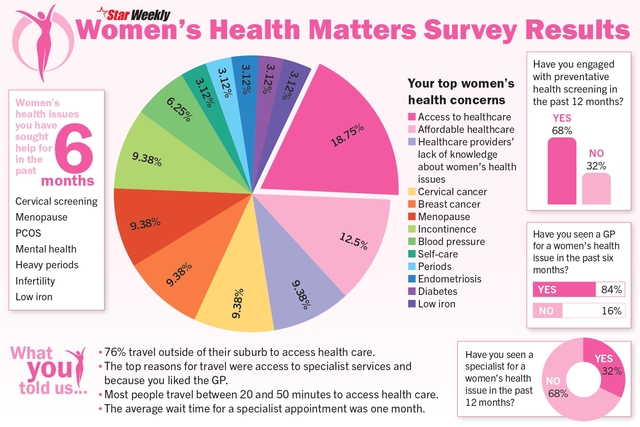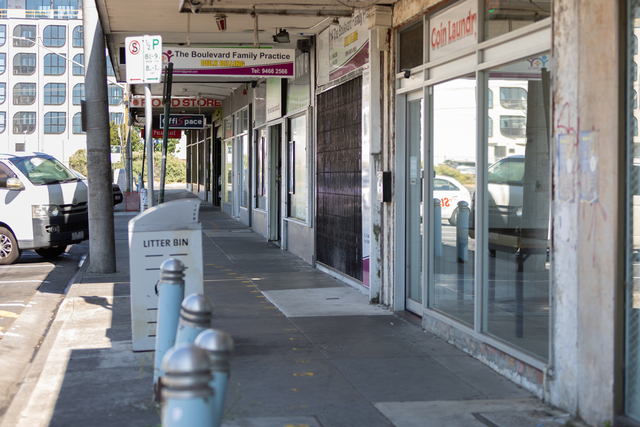Access to healthcare and the costs associated with seeing a doctor are the top health concerns of women living in Melbourne’s western and northern suburbs, a Star Weekly survey has found.
As part of the Women’s Health Matters campaign, Star Weekly ran a six-week online survey asking women to share their health concerns with us.
The campaign is stiving to address the systemic obstacles and barriers women must overcome when managing their health.
Survey respondents told us that their top health concerns were access to healthcare, affordable healthcare, healthcare providers’ lack of knowledge about women’s health issues, cervical cancer, breast cancer, menopause and incontinence.
A massive 76 per cent of survey respondents said they travelled outside of their suburbs to access healthcare.
Women who took the survey told us they travelled between 20 and 50 minutes to access healthcare.
The most common reasons were to access specialist care and to see a trusted GP.
The survey also found that women living in the northern and western suburbs are typically waiting at least one month to secure an appointment with a specialist.
Thirty-two per cent of respondents said they had seen a specialist for a women’s health issue in the past 12 months, while 84 per cent had visited their GP for a women’s health issue in the past six months.
Women told us that most commonly, they had booked a GP appointment for concerns about menopause and heavy periods, and to access cervical screening.
Sixty-eight per cent of women said they had accessed preventive health screening such as cervical and breast screening in the past year.
The results of Star Weekly’s survey mirror the outcomes of a state government-run survey earlier this year, in which women and girls shared their experiences of feeling ignored or dismissed by clinicians who attributed their pain to psychological and personality factors, as well as culturally unsafe care.
They also told the government about cases of delayed diagnosis, and the high cost of care.

















